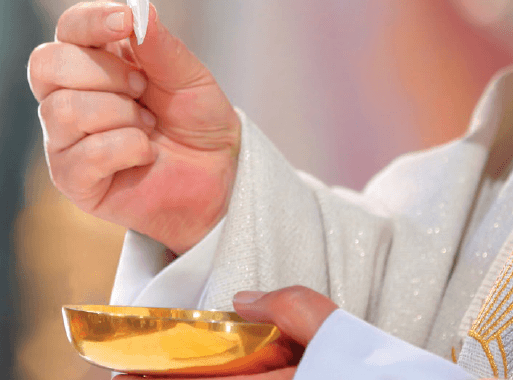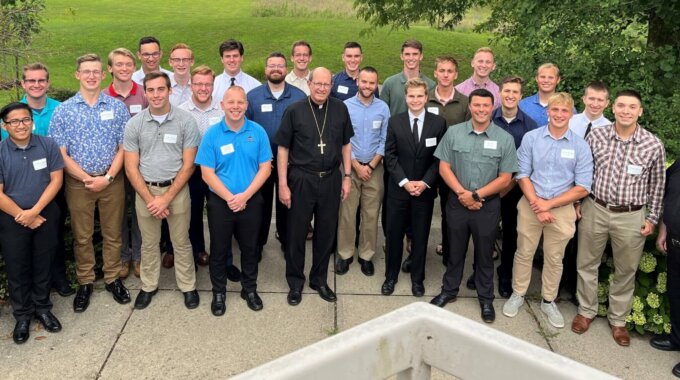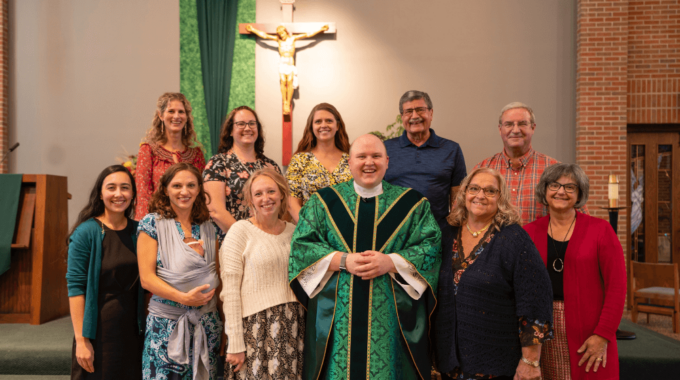November 2024 by Fr. Rob Mulderink Since this is my first time writing this column,…
Making God Your #1
Pope Francis has declared 2021 the year of St. Joseph. In his apostolic letter Patris corde (“With a Father’s Heart”), Pope Francis explains the role of chastity in St. Joseph’s vocational call as the husband of Mary and the father of Jesus: “Chastity is freedom from possessiveness in every sphere of one’s life. Only when love is chaste, is it truly love. A possessive love ultimately becomes dangerous: it imprisons, constricts and makes for misery. God himself loved humanity with a chaste love; he left us free even to go astray and set ourselves against him.” (7)
So often when we see the word “chastity,” we have tunnel vision and see it simply as freedom from sexual sins like infidelity. As the pope reminds us, chastity is so much more than that.
So what is chastity? Chastity is purity of heart and committed love. Priests and religious alike are called to love God and his Church chastely. Married couples, too, are called to love each other chastely. In other words, we are all called to a life of chaste love.
Chaste love is purity of heart. Love that is pure of heart is not contaminated by an inordinate love for other things. Chaste love chooses to love God and others first. Threats to our purity of heart can include issues of sexuality, but also our inordinate love for inanimate objects like technology. How many of us have noticed how our cell phone has become an invisible wall between the people we share most of our lives with? Other things might include sports, friends, jobs and even ourselves. If any of these things become our Number 1, we do not have purity in heart. Purity of heart puts things in their proper place and order: God first, Church and family second, others third and oneself last. The first half of chastity is purity of heart, eliminating things that contaminate our love and put-ting God first.
We see this most perfectly in Jesus Christ. Jesus comes and dwells among us. He becomes the icon of God’s love through his humanity. Jesus shows us how to love. First, he offers his whole self as a gift for us. This is Christ’s sacrificial love: He offers everything, his whole life, to us in the sacrifice of the cross. Sacrificial love is an important aspect of committed love because one remains even when it gets difficult. Lastly, Christ shows us that committed love gives oneself to another. Jesus gives himself to us so that we can have communion and friendship with him.
At St. John Vianney College Seminary, the seminarians join their voices in a mantra at the conclusion of prayer: men in Christ, men of the Church, men for others. This is a great definition of chaste love and a reminder for our seminarians that they are being formed to be a chaste spouse to God’s Church as priests. Chaste love places God first, Church second, others third and self, last. Chaste love in the priesthood imitates Christ’s self-giving love on the cross by giving our best to God’s people.
May we continue to pray that our priests and future priests are men of chaste love: men who love with purity of heart and committed love.
In Christ’s Friendship,
Fr. Stephen




